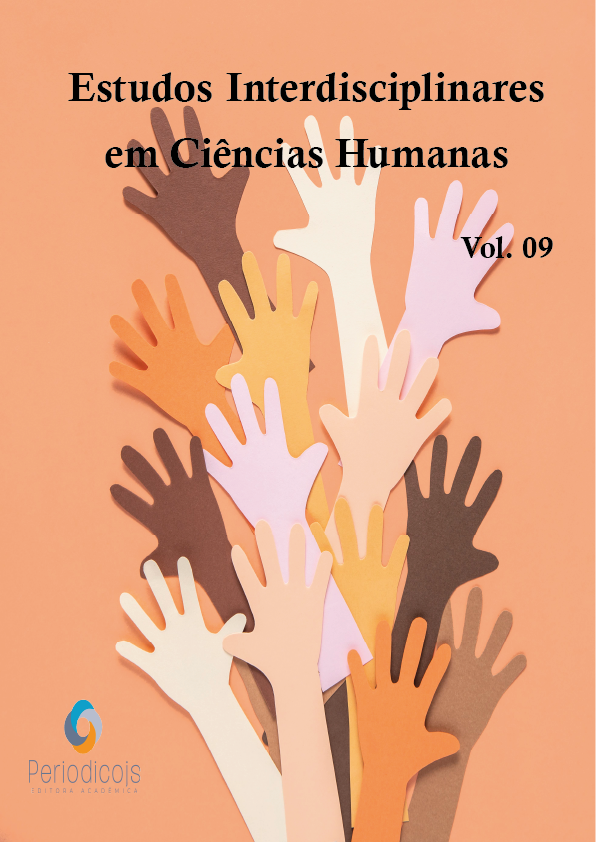Abstract
this bibliographical article proposes a reflection on the concept of institutional racism, and what could be the performance of Sociology in the face of the evidence of its manifestation. When thinking about the Brazilian social reality, one realizes how much racism is penetrated and the history of social struggles such as those of the contemporary black movement in the face of public policies and in public power spaces. It intends to analyze the sociologist’s performance in the face of institutional racism and his action for good in a diffuse way in the functioning of institutions and organizations. It is pointed out that, in the deconstruction of racism, it is necessary, in addition to the implementation of solid public policies, to provoke a process of deracialization, generating academic reflections on how the constructs of these mechanisms are operated. In the various social areas, where it is up to the sociologist to act, biopower devices must be analyzed, as they manage the life of the population from a racial point of view. Therefore, there is a need for more qualitative research, especially those with an ethnographic approach that reflect on how these devices operate in the institutions’ daily lives.
References
ALMEIDA, Magali da Silva. ALCANTARA, Itamires Lima Santos. A questão étnico-racial na agenda das entidades de representação dos (as) assistentes sociais: breve panorama atual .16º Congresso Brasileiro de Assistentes Sociais. Tema: “40 anos da “Virada” do Serviço Social” Brasília (DF, Brasil), 30 de outubro a 3 de novembro de 2019. Disponível em: https://broseguini.bonino.com.br/ojs/index.php/CBAS/article/view/1858#:~:text=Resumo,forma%C3%A7%C3%A3o%20e%20no%20exerc%C3%ADcio%20profissional. Acesso em: 21 jul 2023.
AMMAPSIQUE E NEGRITUDE QUILOMBHOJE. Identificação e abordagem do racismo institucional. Brasil, 2008.
BARROCO, M. L. S. Ética: fundamentos sócio-históricos. São Paulo: Cortez, 2008.
BRASIL. Política Nacional de Saúde Integral da População Negra. Secretaria Especial de Políticas de Promoção da Igualdade Racial – SEPPIR. Ministério da Saúde Secretaria de Gestão Estratégica e Participativa. Brasília - DF Fevereiro de 2007 Disponível em: http://bvsms.saude.gov.br/bvs/publicacoes/politica_nacional_saude_populacao_negra.pdf Acesso em: 21 jul 2023.
CASHMORE, E. et al. Dicionário de relações étnicas e raciais. Tradução de Dinah Kleve. São Paulo: Selo Negro, 2000
EURICO, Márcia Campos. A percepção do sociólogo acerca do racismo institucional. Serviço Social. Sociologia. São Paulo, n. 114, p. 290-310, abr./jun. 2013.
FOUCAULT, M. Nascimento da biopolítica: Curso dado no Collège de France (1978-1979). São Paulo: Martins Fontes, 2008.
GUIMARÃES, A. S. A. Racismo e antirracismo no Brasil. São Paulo: Editora 34, 1999.
JACCOUDE, L. O combate ao racismo e à desigualdade: o desafio das políticas públicas de promoção da igualdade racial. In: THEODORO, M. (Org.). As políticas públicas e a desigualdade racial no Brasil: 120 anos após a abolição. Brasília: Ipea, 2008.
JAMES, A. Cooking the books: global and local identities in food cultures. In: HOWES, D. (Ed.). Cross-Cultural Consumption: global markets and local realities. London: Routledge, 1996
LOPES, F.; QUINTILIANO, R. Racismo Institucional e o Direito Humano à Saúde.Democracia Viva. nº 34. jan/mar 2007.
VINAGRE, M.; PEREIRA, T. M. D. Ética e Direitos Humanos. In Curso de Capacitação Ética para Agentes Multiplicadores. vol. 4, 2. ed. Brasília: CFESS, 2007.





